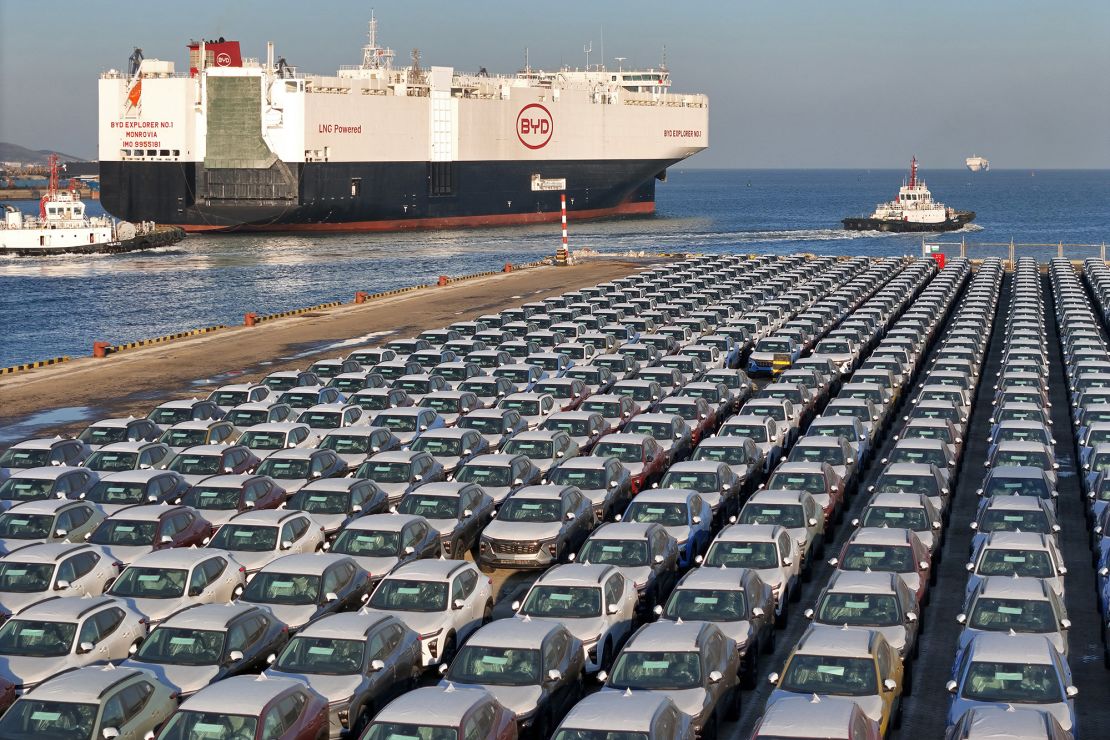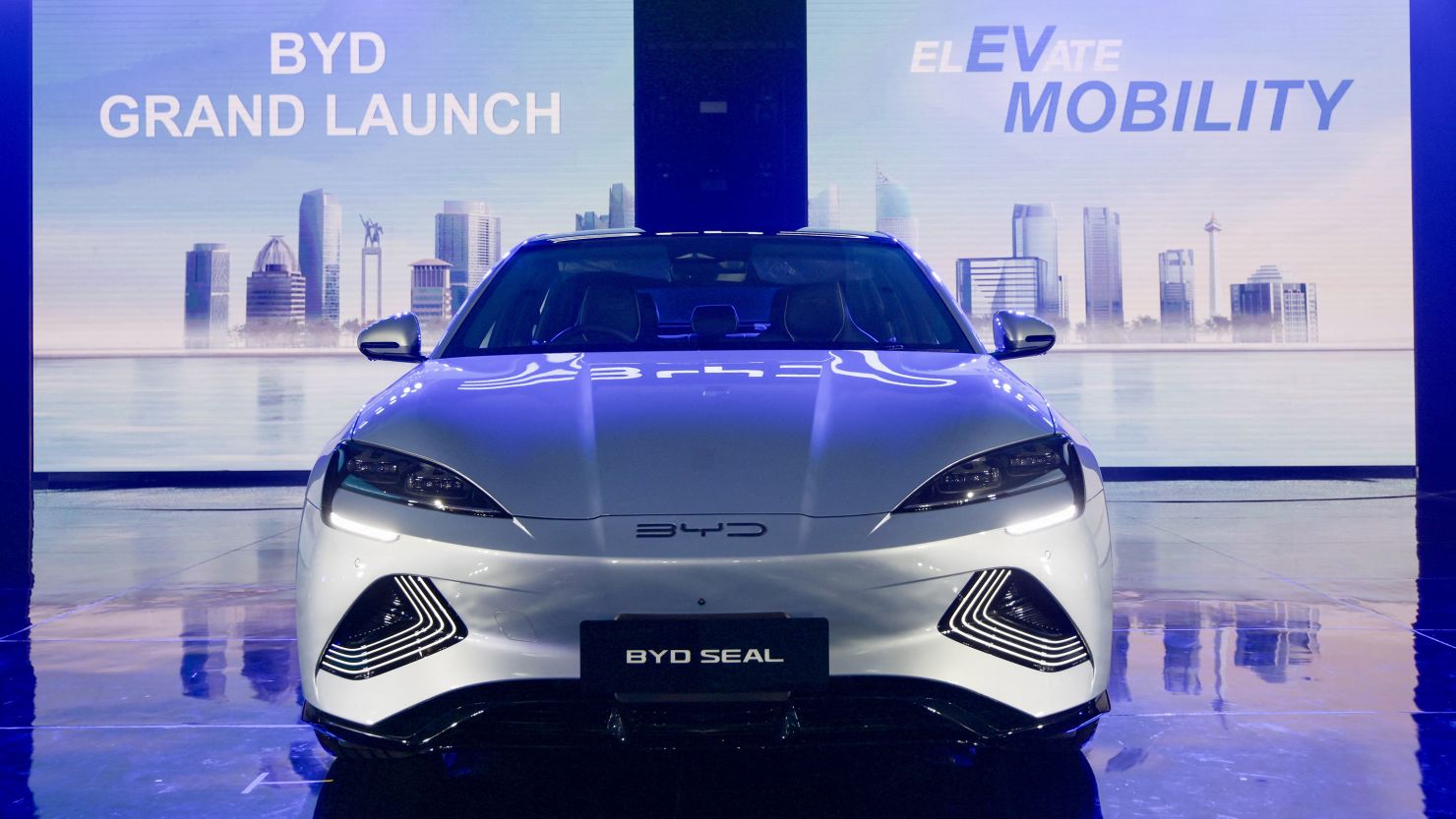China is promising to help its electric vehicle (EV) makers cope with international trade restrictions and build overseas supply chains, as part of a major global expansion effort for the industry.
The pledge comes as China’s booming EV exports face increasing protectionist pushback in some regions, including Europe and the United States.
On Wednesday, China’s Commerce Ministry posted a document signed late last year by nine government agencies, including the Foreign Ministry and the central bank, vowing to support Chinese EV makers with their globalization push.
Among the 18 measures laid out in the document, the agencies said they will help Chinese companies “actively respond” to foreign trade restrictions.
“[We] need timely tracking of policies and regulations related to market access, environmental protection, data protection, IP protection, and to compile and issue country-specific trade guidelines,” the document said.
It also encouraged Chinese EV companies to cooperate with foreign manufacturers in technology and build supply chains that can benefit everyone.

The agencies also pledged to help Chinese companies improve their overseas compliance capabilities.
Chinese EV makers are taking the world by storm, even if they are largely locked out of key markets like the United States. Their cars, which are cheaper than models built elsewhere, have made inroads in Europe, Australia and Southeast Asia.
Last year, Chinese firms shipped more than 1.2 million new energy vehicles to the rest of the world, up 77% from 2022, according to data from the China Association of Auto Manufacturers.
That helped China surpass Japan as the world’s top vehicle exporter for the first time, according to data from industry groups. In 2023, China exported a total of 4.91 million vehicles, surpassing Japan’s 4.42 million, the CAAM figures showed. (Official customs data from China and Japan suggest the latter is still the world’s top car exporter.)
Chinese EV makers are seeking alternative growth engines overseas because the picture is gloomy at home. The domestic economy has lost momentum, and a price war has intensified due to too much competition.
BYD, the Shenzhen-based manufacturer, overtook?Tesla?(TSLA) as the world’s top seller of EVs at the end of last year, crowning an extraordinary rise for the Chinese carmaker. The company plans to expand its supply chain in Europe, announcing in January that it would build an EV factory in Hungary.
The flood of cheaper Chinese vehicles has triggered trade tensions with some countries. In October,?the European?Commission launched an anti-subsidy?investigation?into EV imports from China.
In the United States, the Biden administration announced new regulations in December that aim to keep Chinese batteries out of cars sold in the country. The government is additionally discussing raising tariffs on some Chinese goods, including electric vehicles, in an attempt to bolster the US clean-energy industry against cheaper Chinese products, the Wall Street Journal reported in December, citing anonymous sources.





